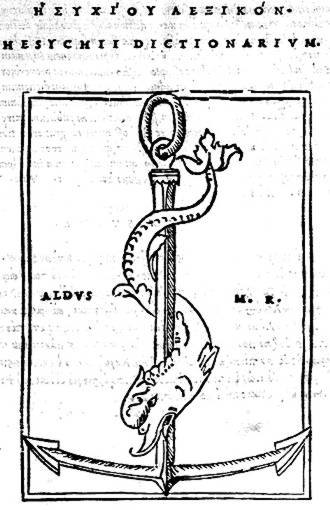Lessico
Esichio di Alessandria
In greco Hësýchios. Lessicografo greco vissuto probabilmente nel V secolo dC. Fu autore del più ampio dei lessici greci a noi giunti, repertorio di forme tratte da innumerevoli testi, fonte insostituibile per la conoscenza della lingua greca, specie dei dialetti.


Esichio di Alessandria fu un grammatico di Alessandria, probabilmente vissuto nel V secolo dC. Compilò il più ricco glossario di parole greche rare od oscure, a noi tradito da un unico manoscritto del XV secolo. L'opera include approssimativamente 51.000 voci, ordinate alfabeticamente. Si tratta di una copiosa lista di parole, forme ed espressioni strane, con una spiegazione del loro significato e spesso con un riferimento all'autore che le ha usate o alla regione della Grecia dove erano più comuni. L'opera è di grande importanza per gli studiosi nella ricostruzione del testo degli autori classici in generale, e particolarmente di scrittori come Eschilo e Teocrito, che usavano molte parole rare. La sua importanza può difficilmente venire sopravvalutata. Esichio è fonte importante non solo per la lingua greca, ma anche per il tracio e l'antico macedone e per ricostruire il proto-indoeuropeo.
Le
spiegazioni di Esichio di molti epiteti ed espressioni rivelano anche molti
fatti importanti riguardo la religione e la società degli antichi. In una
lettera prefatoria Esichio cita che il suo glossario è basato su quello di
Diogeniano![]() , a sua volta estratto da un'opera precedente di Panfilo di
Alessandria
, a sua volta estratto da un'opera precedente di Panfilo di
Alessandria![]() , ma ha usato anche analoghe opere di Aristarco, Apione, Eliodoro e
altri.
, ma ha usato anche analoghe opere di Aristarco, Apione, Eliodoro e
altri.
Esichio probabilmente era pagano. Spiegazioni di parole di Gregorio di Nazanzio e altri scrittori cristiani (glossae sacrae) sono interpolazioni successive. Il glossario sopravvive in un manoscritto del XV secolo fortemente corrotto, che è conservato nella biblioteca di San Marco a Venezia, (Marc. Gr. 622, XV sec.). La migliore edizione è di M. Schmidt (1858-1868), ma nessuna edizione comparata dei manoscritti è stata pubblicata da quando fu stampata per la prima volta da Marco Masuro, presso la tipografia di Aldo Manuzio a Venezia nel 1514 (ristampata nel 1520 e 1521 con leggere revisioni).
Sotto il patrocinio dell'Accademia Danese di Copenaghen un'edizione moderna è stata pubblicata a intermittenza a partire dal 1953: sono state pubblicate le voci da alfa a omicron.
Hesychius of Alexandria, a grammarian that flourished probably in the 5th century CE, compiled the richest lexicon of unusual and obscure Greek words that has survived (in a single 15th century manuscript). The work includes approximately 51,000 entries, a copious list of peculiar words, forms and phrases, with an explanation of their meaning, and often with a reference to the author who used them or to the district of Greece where they were current. Hence the book is of great value to the student of the Greek dialects; while in the restoration of the text of the classical authors generally, and particularly of such writers as Aeschylus and Theocritus, who used many unusual words, its value can hardly be exaggerated. Hesychius is important, not only for Greek philology but also for studying lost languages (such as Thracian and the ancient Macedonian language) and in reconstructing Proto-Indo-European.
Hesychius' explanations of many epithets and phrases also reveal many important facts about the religion and social life of the ancients. In a prefatory letter Hesychius mentions that his lexicon is based on that of Diogenianus (itself extracted from an earlier work by Pamphilus), but that he has also used similar works by the grammarian Aristarchus of Samothrace, Apion, Heliodorus, Amerias and others.
Hesychius was probably a pagan. Explanations of words from Gregory Nazianzus and other Christian writers (glossae sacrae) are later interpolations. The lexicon survives in one deeply corrupt 15th century manuscript, which is preserved in the library of San Marco at Venice, (Marc. Gr. 622, 15th century). The best edition is by Moriz Wilhelm Constantin Schmidt (1858-1868), but no complete comparative edition of the ms has been published since it was first printed by Marcus Musurus (at the press of Aldus Manutius) in Venice, 1514 (reprinted in 1520 and 1521 with modest revisions).
Under the auspices of the Danish Academy in Copenhagen a modern edition has been in intermittent publication since 1953: alpha to omicron have been published.